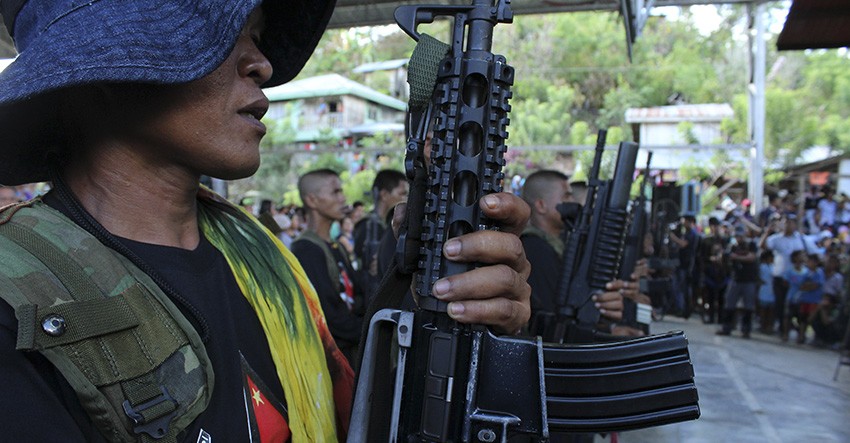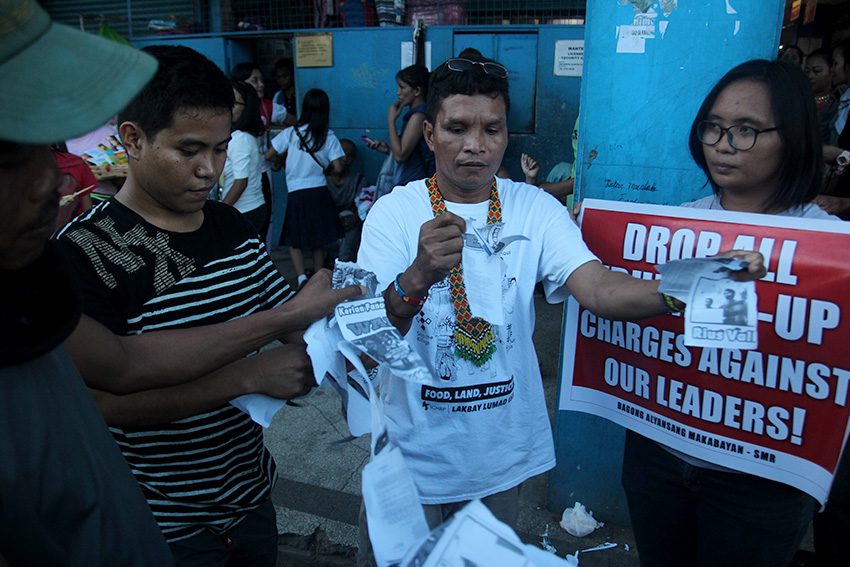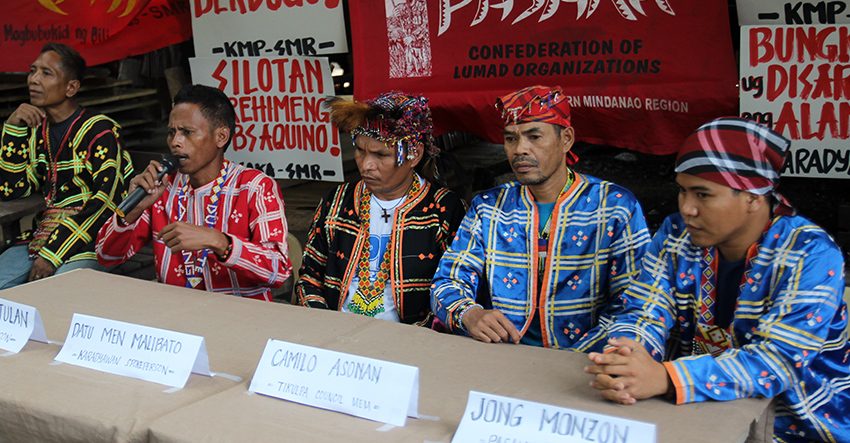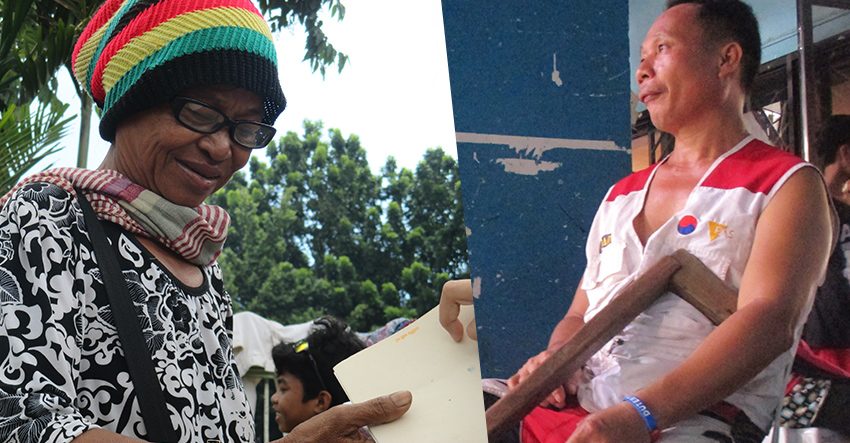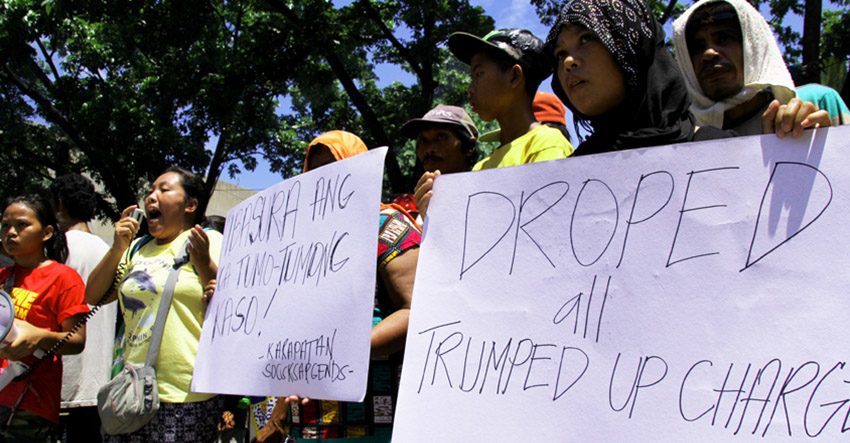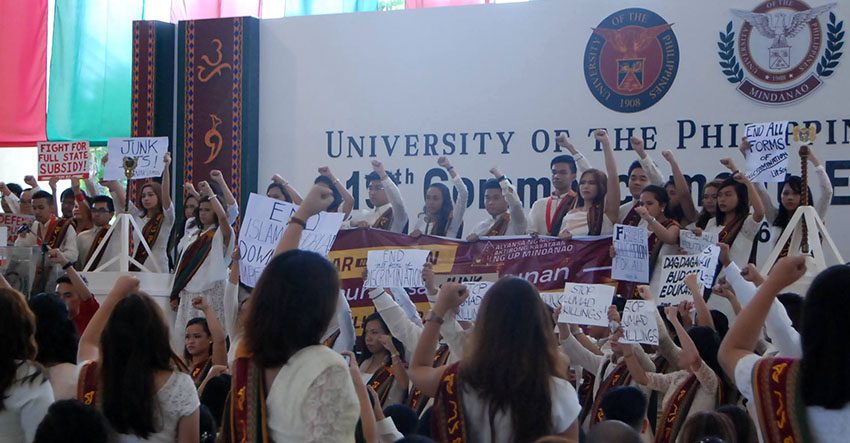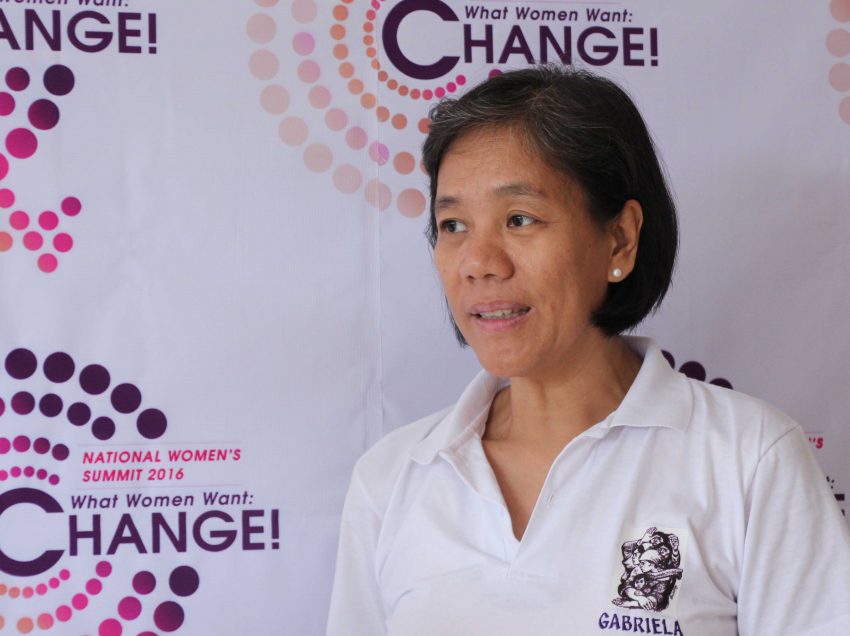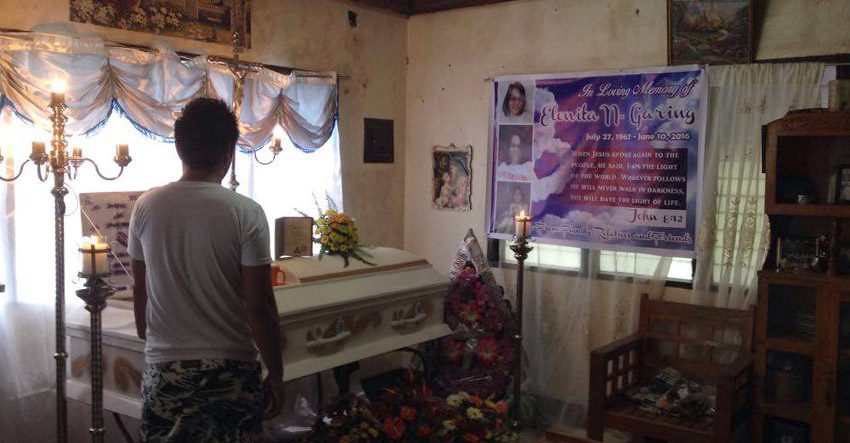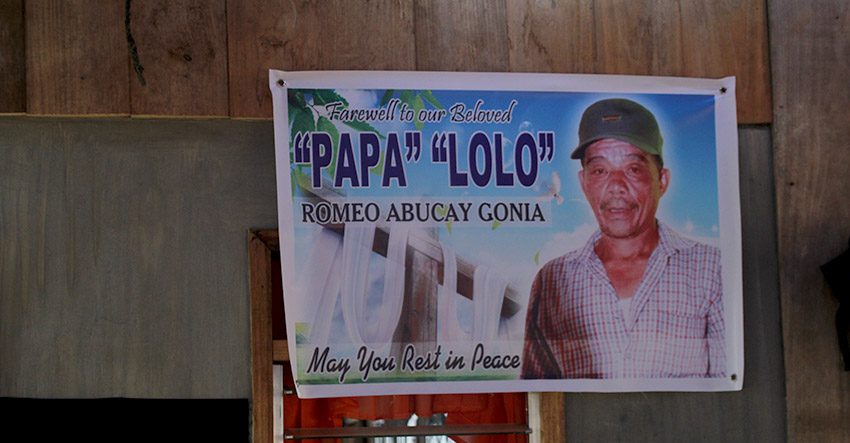The New People’s Army said the body of its member who was killed in Magpet town, North Cotabato was “severely mutilated” citing accounts of the residents.
Progressive groups here called on residents to support their leaders who have warrants of arrest for charges of kidnapping and serious illegal detention of evacuees whom they assisted during an evacuation at a church compound last year.
Three days after news on the killing of a high-ranking Communist leader in Magpet town, Cotabato province broke out, photos of a New People’s Army member seen mutilated with eyes gouged out circulated on Facebook Monday, July 4.
Lumad leaders who sought refuge in a church compound here backed the 15 activists who were issued with arrest warrants for alleged kidnapping and illegal detention of the evacuees.
Thousands of people who marched yesterday here to support the resumption of peace talks braved the hunger and lack of money back home.
If not for a reporter who showed him a copy of the warrant of arrest, a church leader who was among those accused of kidnapping and serious illegal detention of indigenous peoples evacuees here, would not know about his pending arrest by police authorities.
With raised fist, student activists and faculty staff of the University of the Philippines Mindanao reminded the graduates to fulfill their responsibility to serve the people and to uphold their roles as “Iskolars ng Bayan” (nation’s scholars) during the 19th Commencement Exercises Tuesday, June 28.
A former political detainee is calling on incoming members of Congress to support the amnesty for political prisoners which President-elect Rodrigo Duterte plans to do.
Nilo, 22 said he was about to file his leave of absence from work to join his mother’s birthday celebration next month.
A farmer’s wife said her husband in Montevista town, Compostela Valley province committed suicide hours before his “scheduled interview” with military troops on Tuesday, June 8.

